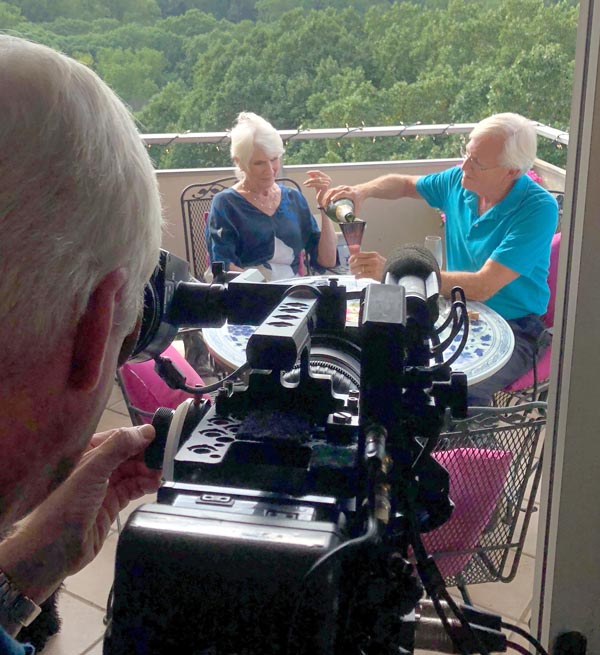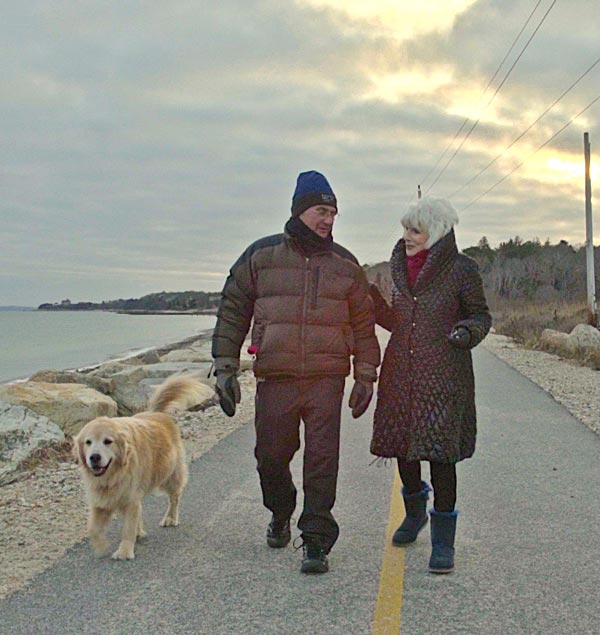A NOTE FROM DIRECTOR JOE FAB

WHEN MY TIME COMES depicts Diane Rehm’s exploration of the subject of medical aid in dying (MAID). This is an option for terminally-ill patients with six months or less to live who are able to make their own medical decisions and meet certain other criteria required by law in the nine states and the District of Columbia, where MAID is permitted. It is an option that John Rehm, Diane’s husband of 54 years, wanted before he died in 2014, but could not have.
The film tells Diane and John’s story, as well as the stories and perspectives of others as Diane sets out to discover as much as she can about the issue. Viewers will learn what Diane learns, right alongside her, in a series of conversations with patients, family members, physicians, clergy and lawmakers. A diversity of viewpoints is represented – pro, con and undecided.
 The timeliness of this film is clear. Today, there is something of a MAID movement happening in the United States. The first authorization went into effect in Oregon in 1997, but MAID became legal in most of the other nine jurisdictions where it is allowed just within the last decade. As of late 2019, about 22% of the country’s population lives in jurisdictions where this option is permitted.
The timeliness of this film is clear. Today, there is something of a MAID movement happening in the United States. The first authorization went into effect in Oregon in 1997, but MAID became legal in most of the other nine jurisdictions where it is allowed just within the last decade. As of late 2019, about 22% of the country’s population lives in jurisdictions where this option is permitted.
We have two primary educational objectives for the film. First, we want to help Americans understand what medical aid in dying actually is, and what it is not. For example, it is not suicide, euthanasia, mercy killing or any of the other things with which it is sometimes confused. Those who use MAID are already going to die within a predicted six months or less; what they are doing is choosing, within lawfully-prescribed conditions, to exercise some control over how much suffering they must bear before they die.
 Second, we want to encourage people to have conversations about what they want at the end of their lives, and to have those conversations early and in depth. This comes from the belief that trying to define what one wants when death is imminent can become a desperate and too-often failed effort. It can deprive us and our loved ones of the kind of peace and comfort that ought to be available in our final days.
Second, we want to encourage people to have conversations about what they want at the end of their lives, and to have those conversations early and in depth. This comes from the belief that trying to define what one wants when death is imminent can become a desperate and too-often failed effort. It can deprive us and our loved ones of the kind of peace and comfort that ought to be available in our final days.
Death will come to each of us. It is one of the most significant personal moments we will experience, and we believe that autonomy at that time should be granted to all who are competent to make their own medical decisions.
As Diane says, if you believe that God alone should decide when and how you will die, we support you 100%. If you wish to make use of every tool medical science can offer to prolong your life as long as possible, we support you 100%. And if you wish to have medical aid in dying in order to have some control over how a terminal diagnosis will play out, we support you 100% as well.

